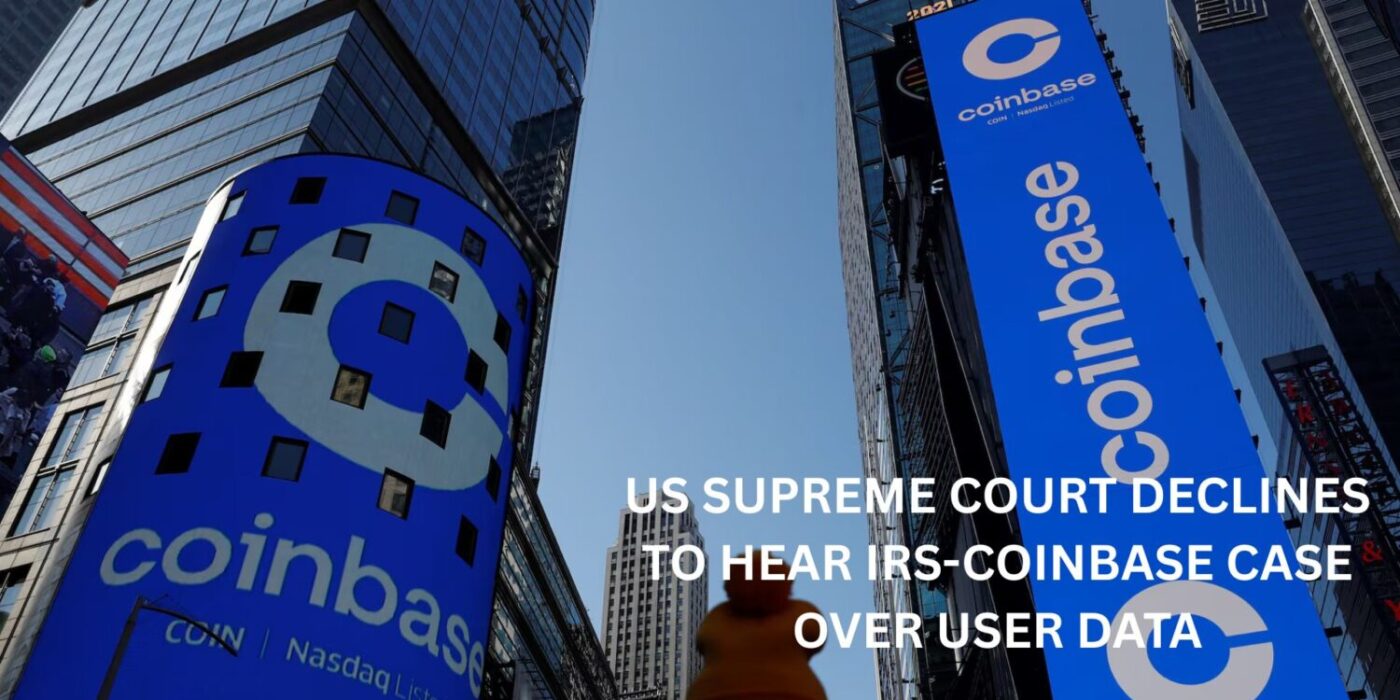Key Takeaways
- The Coinbase user, Harper, had argued that the IRS’s access to his records amounted to an unlawful search and seizure under the Fourth Amendment.
- With this move, the lower court ruling will stand in a case involving a Coinbase user
The United States Supreme Court has declined to hear a case brought by James Harper, a Coinbase user who alleged that the Internal Revenue Service (IRS) violated his constitutional rights when it obtained his crypto transaction records without a warrant. The Court’s refusal to review the case leaves in place a lower court ruling that sided with the IRS, reinforcing the government’s authority to access third-party financial data in investigations.
Harper filed the lawsuit in 2020 after the IRS served a “John Doe” summons to Coinbase, demanding user data for individuals suspected of failing to report cryptocurrency gains. The IRS had not named Harper directly in the summons but later used the data obtained from Coinbase to investigate his tax filings.
Harper argued that the IRS’s access to his records amounted to an unlawful search and seizure under the Fourth Amendment. He claimed he had a reasonable expectation of privacy in his financial information, even though it was held by a third-party service provider. He asked the courts to revisit the precedent set in the 1976 United States v. Miller decision, which held that individuals do not have privacy rights over records shared with financial institutions.
After a district court dismissed the lawsuit, the First Circuit Court of Appeals upheld the ruling. The appeals court stated that the IRS acted within its legal authority under current law, and that no Fourth Amendment violation had occurred. Harper subsequently petitioned the Supreme Court to take up the case, but the justices denied the request without comment on Monday.
Coinbase, which complied with the IRS summons after legal challenges, filed a supporting brief urging the Court to hear the case. The company expressed concern that the current legal standard allows federal agencies to track every crypto transaction without adequate judicial oversight.
With the Court’s decision not to intervene, the lower court ruling remains in effect.






